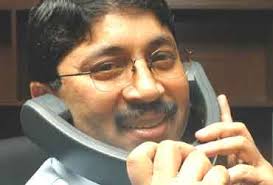New Delhi, Jun 6: Military commanders of India and China are scheduled to meet today at Moldo on the Chinese side of the Line of Actual Control (LAC), to discuss the ongoing dispute along the LAC in Eastern Ladakh.
The Commander of the Leh-based 14 Corps of the Indian Army Commander Lieutenant Gen Harinder Singh will meet his Chinese equivalent Maj Gen Liu Lin, who is the commander of South Xinjiang Military Region of Chinese People's Liberation Army (PLA) to address the ongoing tussle in Eastern Ladakh between the two countries over the heavy military build-up by the People's Liberation Army along the LAC there.
The two sides have held close to a dozen rounds of talks since the first week of May when the Chinese sent over 5,000 troops to the LAC.
On Friday, officials of India and China interacted through video-conferencing with the two sides agreeing that they should handle "their differences through peaceful discussion" while respecting each other's sensitivities and concerns and not allowing them to become disputes in accordance with the guidance provided by the leadership.
In the last few days, there has not been any major movement of the People's Liberation Army troops at the multiple sites where it has stationed itself along the LAC opposite Indian forces.
India and China have been locked in a dispute over the heavy military build-up by the People's Liberation Army (PLA) where they have brought in more than 5,000 troops along with the Eastern Ladakh sector.
The Chinese Army's intent to carry out deeper incursions was checked by the Indian security forces by quick deployment. The Chinese have also brought in heavy vehicles with artillery guns and infantry combat vehicles in their rear positions close to the Indian territory.






Comments
Add new comment